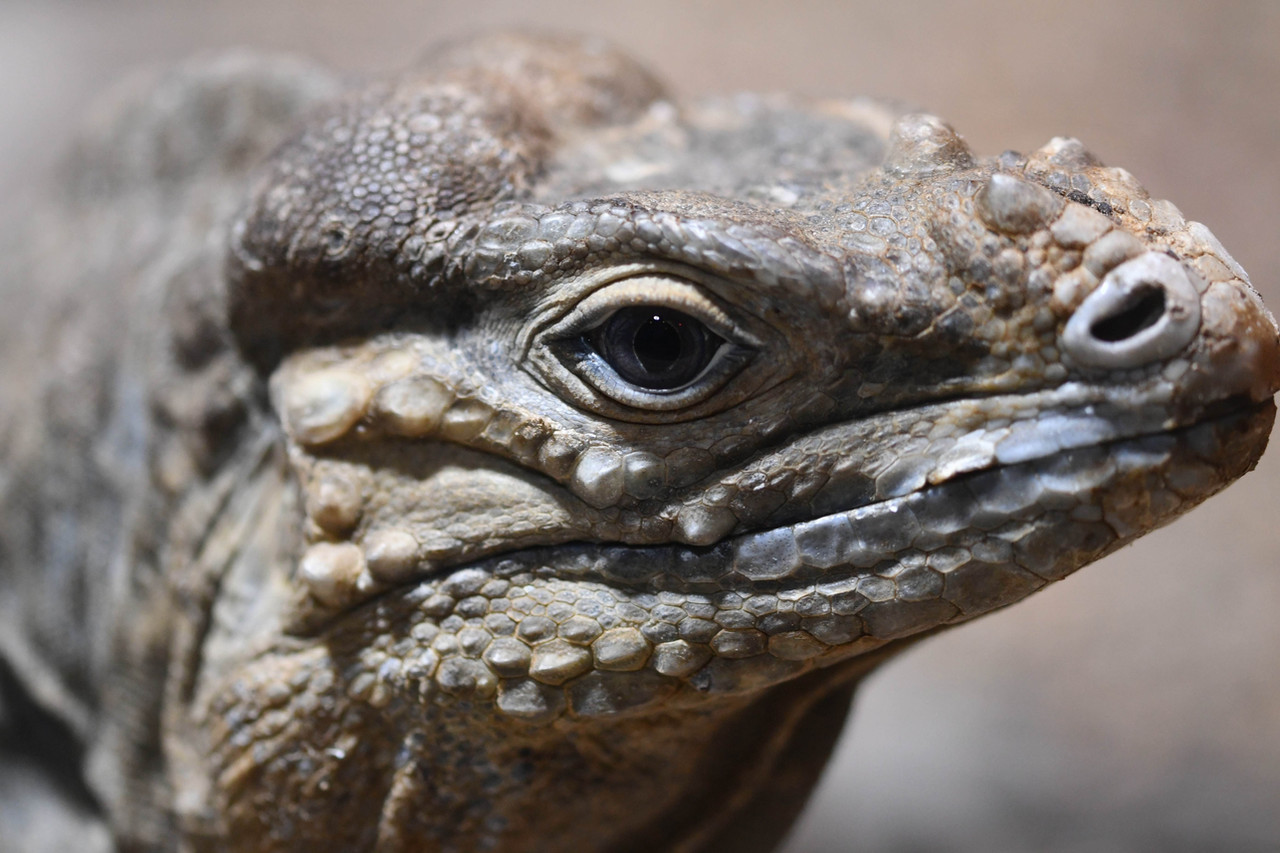HOME | DD
 TheBootesArtVoid — Rhinocerous Iguana's Close Up (enclosure)
TheBootesArtVoid — Rhinocerous Iguana's Close Up (enclosure)

#animal #animalphotography #animals #iguana #iguanas #lizard #lizards #natural #nature #naturephotography #photo #photography #photographyanimals #photographynature #photographyphoto #photos #wildlife #wildlifephotography #wildlifereferencephoto #thebootesartvoid #iguana_lizard
Published: 2022-04-26 08:36:25 +0000 UTC; Views: 10221; Favourites: 177; Downloads: 0
Redirect to original
Description
Species Name: Rhinoceros Iguana
Species Latin Name: Cyclura cornuta
Native To: The islands surrounding the Caribbean Island of Hispaniola
Conservation Status: Endangered
Photo Taken At: Ballarat Wildlife Park
Size (length): 60 – 136cm (23.6 – 53.5 inches)
Weight: 4.5 - 9.0kg (9.9 – 19.8 pounds)
Lifespan: 20 years
Population: 10,000-17,000
Population Trend: Decreasing
Diet: Herbivore, folivore, frugivore, granivore
Lifestyle: Terrestrial, precocial, zoochory, island endemic, territorial, oviparous
Baby Name: Hatchling
Mating Behaviour: Polygyny
Reproductive Season: May - June
Pregnancy Duration: 4-5 months
Incubation Period: 85 days
Births Per Clutch: 2 - 34
Independent Age: At birth
Age of Female Sexual Maturity: 2 – 3 years
Age of Male Sexual Maturity: 4 - 5 years
Description:
Rhinoceros Iguana's are large lizards with heavy heads, strong legs and a vertically flattened tail. These lizards are covered in scales that are either coloured in uniform gray or brown drab, the males tend to grow larger than the females. These lizards are most known for the large horn like scales that grow on their heads, these may be referred to as their horns but they are actually enlarged scales. Other more pointed horned scales extends from the nape of their neck to the tip of their tail, the scaled 'horns' are also larger on the male lizards compared to the females.
Diet:
These iguana's are primarily herbivores and will typically feed on leaves, flowers, berries, seeds, and fruits from various different plant species. This species plays an important role in distributing seeds in their local habitats from one place as another, the seeds come from various fruits consumed which are then deposited as waste by the iguana at a later point elsewhere. Rhinoceros Iguana's also appear to be opportunistic predators as some individuals have been observed to eat small lizards, snakes, land crabs, insects and at times carrion (mostly consisting of dead birds and fish). This behaviour of eating meat appears to be entirely opportunistic as there have been cases of these animals in captivity being fed a diet of pak choi, romaine lettuce, mibuana, and other greens, in these cases the iguana's maintained a healthy lifestyle and diet despite not being given any meat.
Behaviour:
Rhinoceros Iguana's tend to live rather solitary lives and generally only interact with others of their species to mate. They are mostly active during the day and will live in rocky outcroppings with little vegetation for cover, this way they can spend most of their days warming in the sun whilst blending into their rocky surroundings. During the night they will retreat into caves or hollow trunks where they can sleep. They are quick to flee when threatened however, if they feel cornered they will retaliate aggressively by biting and repeatedly swiping with their thick tail.
The males of this species tend to be rather aggressive as they defend their territory, the most aggressive males will tend to have the largest territories to themselves for mating purposes. The males will defend their territory from rival males and other threats with head movements and body gyrations. Rhinoceros Iguana's are have a polygynous mating system where a single males will end up mating with multiple females.
Mating will typically at the beginning or just before the first rainy season of the year between May and June. The mating period itself will last for 2-3 weeks, about 40 days after mating the females will lay a batch of 2-34 eggs. The females will lay their eggs in burrows that are 1.5 meters (4.9 feet) long and will actively guard the nest for several days or for a few weeks to prevent egg predation. The burrow will be made to incubate the eggs and keep them at a minimum temperature of 30 degrees celsius (86 degrees fahrenheit), the eggs will be incubated for approximately 85 days. The young will hatch after this time and will generally be rather active, they are born independent and able to fend for themselves. The Males will reach sexual maturity after 4 to 5 years of their lives where as the females will mature sooner between 2 to 3 years old.
Threats:
Whilst the Rhinoceros Iguana is able to blend into its surroundings they are still subject to being predated on, whilst these animals will resort to elaborate head and neck movements to dissuade potential predators these actions don't seem to have much effect on introduced predators. These iguana's are vulnerable to being preyed on by snakes, feral mongooses, pigs, cats, as well as humans who will hunt them for food as well as for medicinal purposes. Rhinoceros Iguana's are also targeted for capture for the pet trade which has further impacted their numbers.
Other threats to this animals numbers include natural disasters such as hurricanes which can devastate the islands they live on. Other non-natural threats they face is once again at the hands of humans, further habitats are lost as part of clearing of land for various human developments.
Whilst the total number of this species do appear to be declining in number there has been some success in breeding these animals in captivity, there are various programs set up around the world with the intention of breeding the animals in captivity with the hope of reintroducing them to their natural habitats to help stabilize their numbers.
Further Reading (general information):
Wikipedia: en.wikipedia.org/wiki/Rhinocer…
Animal Diversity: animaldiversity.org/accounts/C…
The Animal Facts: www.theanimalfacts.com/reptile…
Related content
Comments: 6

👍: 1 ⏩: 1

👍: 0 ⏩: 0

👍: 1 ⏩: 1

👍: 0 ⏩: 0

👍: 1 ⏩: 1

👍: 0 ⏩: 0
























